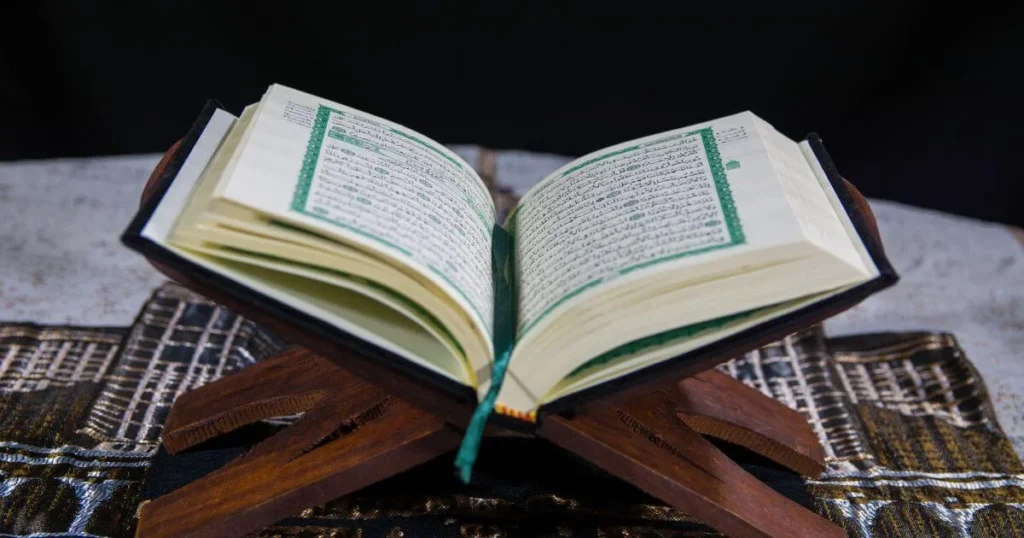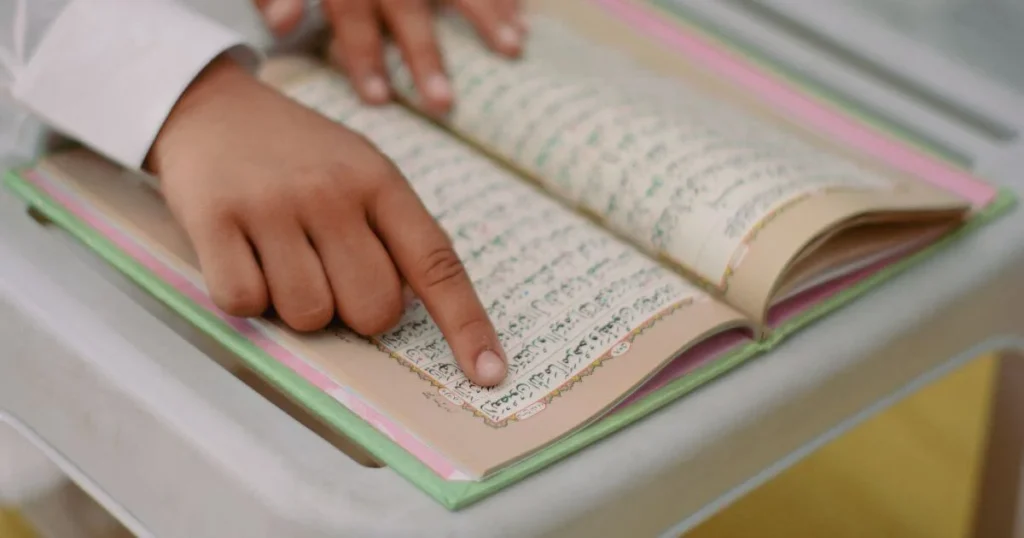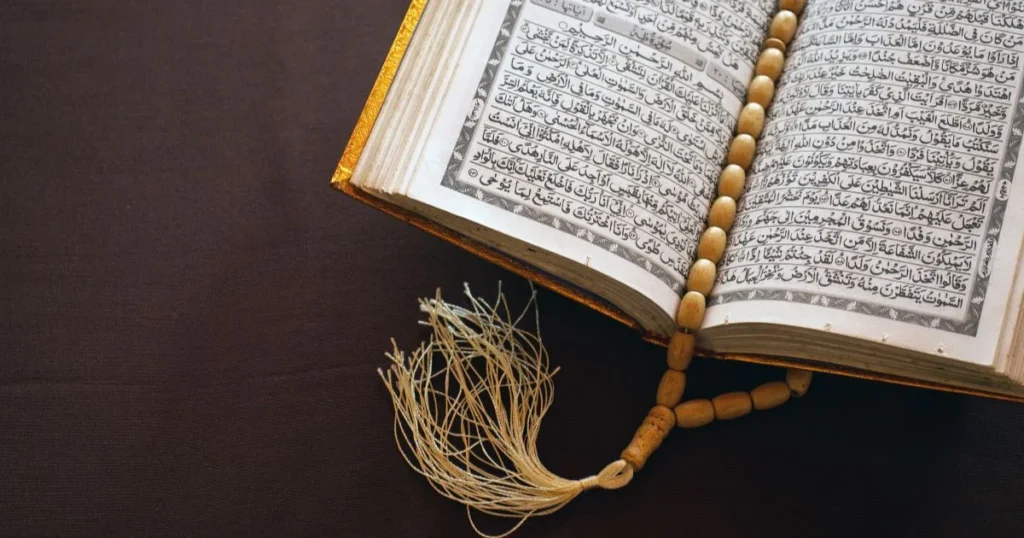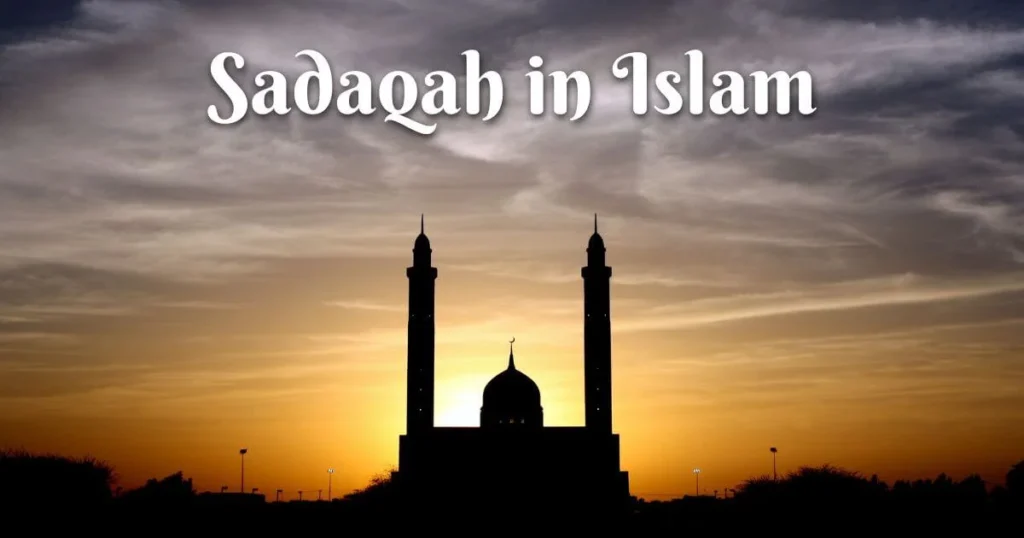10 Great Benefits of Learning Quran Online

10 Great Benefits of Learning Quran Online with Qirat Quran Online
Introduction
Qirat Quran Online, a popular online Quran learning institute, is a beacon of hope for those individuals who wish to start their holy journey of learning the Quran from their home. We will go over the many advantages of using Qirat Quran Online for online Quran learning in this detailed blog post, highlighting the convenience of the online learning process, covering topics relevant to both adults and children.
Learning Quran Online
Learning Quran online offers people a convenient and approachable way to enhance their comprehension of Islamic teachings in the fast-paced world of today. With its extensive platform that surpasses conventional approaches, Qirat Quran Online makes Quran instruction available to students all over the world.
Personalized Learning Experience
Online Quran courses from Qirat Quran Online are customized to meet the unique learning requirements of each student. With a customized learning environment, students can advance at their own speed while getting specialized guidance from knowledgeable teachers.
Flexibility in Scheduling
The scheduling flexibility offered by online Quran study is one of its main advantages. Children with school obligations and adults with hectic schedules can both effortlessly incorporate learning from the Quran into their everyday routines. Because different learners have different schedules, Qirat Quran Online offers convenient time slots for online Quran sessions.
Access to Expert Instructors
A group of knowledgeable Quran educators who are proficient in both the Quranic text and successful teaching techniques makeup Qirat Quran Online. Pupils gain under the direction of knowledgeable tutors who offer insightful advice, guaranteeing a rich and genuine learning experience.
Individualized Attention for Adults
Adult learners frequently have particular learning objectives or areas of interest. Adult learners can receive customized attention when learning Quran online with Qirat Quran Online, which guarantees that they can address their particular needs and enhance their comprehension of the Quran’s teachings.
Engaging and Interactive Lessons
Qirat Quran Online online Quran lectures are made to be interesting and dynamic. The process is made more engaging and productive by the dynamic learning environment created by multimedia resources, interactive modules, and real-time discussions.
Learning Quran Online for Adults
Online learning provides special benefits that are suited to the interests of individuals who want to strengthen their relationship with the Quran.
Self-paced Learning for Adults
Self-paced online Quran courses are highly valued by adult learners. Adult learners can move through lectures at a comfortable pace with Qirat Quran Online, guaranteeing a full comprehension of the subject matter without feeling hurried.
Quranic Reflection for Adults
Adults can engage in introspection by studying the Quran on the internet. By encouraging students to reflect on the meanings of Quran verses, Qirat Quran Online helps them develop a closer relationship with the moral and spiritual teachings found in the Quran.
Integration of Beautiful Quran Verses Tajweed
Through the instruction of Tajweed, Qirat Quran Online emphasizes the proper pronunciation and recitation of Quranic texts. This guarantees that adults studying the Quran online not only comprehend the text correctly but also exhibit the elegance of Quran recitation.
Community Connection for Adults
Adults can interact with like-minded people worldwide while studying the Quran online. Through discussion boards and group activities, Qirat Quran Online promotes community development and helps adults on their Quran learning journeys create a supporting network.
Continuous Spiritual Growth
For adults, learning the Qur’an online via Qirat Quran Online becomes a lifetime adventure. After completing the basic learning phases, adults can continue to expand their knowledge, which promotes ongoing spiritual development and a closer relationship with the Quran.
Learning Quran Online for Kids
Learning Quran online gives kids access to a wealth of spiritual and academic advantages. Being in a unique position, Qirat Quran Online can meet the needs of young students.
Child-friendly Curriculum
A kid-friendly curriculum created to pique the curiosity and attention of young learners is available from Qirat Quran Online. Children find the Quranic lectures to be enjoyable since they are interactive and engaging.
Experienced Child Instructors
Qirat Quran Online hires certified adult educators as well as seasoned kid instructors who are aware of the special requirements of young students. This guarantees that kids get instruction from teachers who know how to make learning the Quran enjoyable for kids.
Incorporation of Stories and Examples
Children’s stories and real-world examples are incorporated into the Quran courses available on Qirat Quran Online. With this method, children may relate to and remember the lessons found in the Quran.
Parental Involvement
Qirat Quran Online promotes parental participation in their children’s Quran education. Parents may foster a cooperative and encouraging learning environment by supporting and reinforcing the lessons their children have learnt.
Building Strong Foundations
With Qirat, learn Quran online. Children can develop a strong Islamic identity by using Quran Online. Early exposure to the teachings of the Quran cultivates a love and sense of pride for the Quran as well as a connection to their faith.
Easy Learning Quran Online
Easy learning is given top priority on Qirat Quran Online so that adults and children can interact with the Quran’s lessons without difficulty.
User-friendly Online Platform
The Qirat Quran web web platform has been created with ease of use in mind. A hassle-free and seamless learning experience is enhanced by accessible features and simple navigation.
Multimedia Resources for Visual Learning
To accommodate different learning methods, Qirat Quran Online uses multimedia resources such as interactive modules and visual aids. This improves the educational process and makes it simpler for students to understand and remember Quranic information.
Progress Tracking
With the platform’s progress tracking capabilities, students may keep track of their progress while studying the Quran. This function gives both adults and children a sense of drive and accomplishment.
Responsive Support Team
A helpful support staff is on hand at Qirat Quran Online and is accessible to answer any questions or concerns you may have. Students can ask for help anytime they need it, which makes learning simple and easy.
Learning Quran Online Free
Discover the beauty of the Quran for free! Access Arabic text and recitations for free. To lay a solid foundation, become familiar with basic pronunciation and Tajweed principles. Explore at your own pace or (optionally) upgrade to receive individualized instruction from our certified teachers. Begin your Quranic adventure now for free.
Learning Quran Online Tuition
You can customize your tuition plan with Qirat Quran Online to fit your budget. While paid choices unlock individualized advice from our knowledgeable trainers, free materials help you get started. Invest in your Quranic adventure right now.
Learning Quran Online for Children
Encourage your kid to have a passion for the Quran! Learning is fun when there are knowledgeable lecturers offering engaging online lessons. Children are driven by interactive elements, and their growth is supported by a secure and encouraging atmosphere. Register your child at Qirat Quran Online right now.
Learning Quran online free how to recite Quran?
Get free online Quran recitation lessons! To start your trip, access text and recitations in Arabic. Learn the fundamentals of pronunciation and the tenets of Tajweed at your own speed. Upgrade for individualized coaching from our knowledgeable instructors (optional). Recite the Quran for free right now.
Free Learning Quran Online
Visit Qirat Quran Online to begin your Quranic adventure at no cost! Arabic text and recitations can be accessed through free resources. To lay a solid foundation, master the principles of Tajweed and pronunciation. Proceed at your own speed or upgrade to receive individualized assistance (optional). Accept the Quran for nothing right now.
Learning Quran Online UK
Are you looking for a UK online Quran instructor? A practical and efficient answer is provided by Qirat Quran Online. You receive remote guidance from knowledgeable professors who guarantee precise pronunciation and a deeper comprehension of the Quran. Your hectic life is catered to with flexible schedules. Sign up now to get started on your Quranic journey.
Conclusion
Using Qirat Quran Online to learn the Quran online is a life-changing opportunity that knows no geographical bounds. The academy offers a wide range of programs, from kid-friendly curricula to individualized learning experiences for adults, all with the goal of promoting a strong and enduring relationship with the Quran. May the benefits of knowing the Quran go beyond mere knowledge gain and bring about spiritual enrichment, personal development, and a closer relationship with God for all who embark on this holy path of Quranic study.
FAQS:
Reputable online learning environments with knowledgeable teachers, engaging classes, and interactive lectures are the ideal places to learn the Quran.
Begin by becoming acquainted with Arabic lettering and basic pronunciation before working your way up to simpler verses in the Quran.
Numerous websites and applications that provide free access to Quranic texts and resources make it feasible to learn how to read the Quran online for free.
Share on >>
10 Great Benefits of Learning Quran Online Read More »









